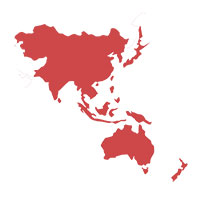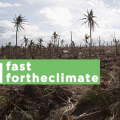Waves consumed villages, winds warped cities, entire communities were left powerless and destitute. A year on from Typhoon Haiyan, UN delegates present in Lima, Peru for the latest round of negotiations can still vividly recall learning about the disaster in Warsaw this time last year.
Haiyan, locally known as Yolanda, hit the Philippines just over a year ago at the same time the Filipino government were in Poland passionately reminding the world that it’s time to act on climate.
For those well versed within the UN framework convention on climate change, reading about this may conjure up déjà vu as it’s about to happen again.
Typhoon Hagupit has already began to make landfall. Locally known as Ruby, this typhoon is estimated to affect nearly 32 million people according to theU.N. Global Disaster Alert System.
Ruby marks the third time the Philippines has been hit by a series of typhoons during the UN climate change negotiations. Typhoon Bopha struck in 2012 whilst international delegates were in Doha, and Haiyan occurred in 2013.
Both years, urging action, a star of the climate world and lead Philippines negotiator Yeb Saño made impassioned speeches to conference attendees. This year has also seen a political storm in Lima and the Philippines when it was revealed that Saño would not be present in Lima.
With Hagupit bearing down on the Philippines, Saño indicated he will stay at home to “stand with my people as we face another super typhoon,”according to his Twitter.
With Saño’s voice missing from these negotiations, Greenpeace is running a campaigning linking Hagupit to fossil fuel companies by renaming them.
Nature’s indifference and ability to wreak havoc reminds us how vulnerable human civilisation is to its power. A naturally occurring storm can force thousands into homelessness, extreme poverty and in instances prove fatal. There’s no shortage to the number of disasters occurring globally, from: typhoons in the Philippines, droughts in California and Kenya, to melting Nepalese glaciers. We may not be able to control nature, we do have the ability to prevent these problems from getting worse though. Some world argue, a responsibility.
It’s this sense of responsibility that brings negotiators to Lima. Moving the world towards a fair and ambitious agreement in Paris next year becomes all the more important when governments are reminded how things like Typhoon Hagupit will impact humans.












comment